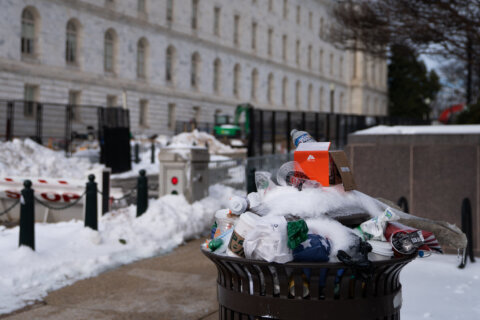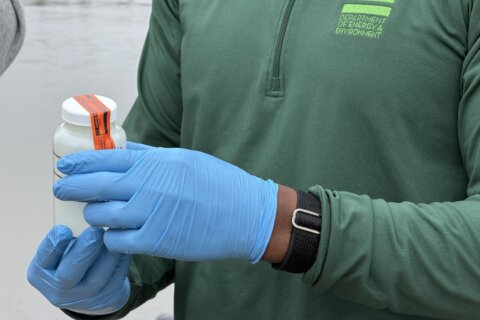The D.C. medical examiner has released the cause and manner of death for Brian Sicknick, the Capitol Police officer who died a day after the Jan. 6 attack on the Capitol.
The office of Medical Examiner Dr. Francisco Diaz said Sicknick died of “acute brainstem and cerebellar infarcts due to acute basilar artery thrombosis,” which the National Center for Biochemical Information describes as “a devastating form of stroke with high morbidity and mortality.”
The medical examiner listed the manner of Sicknick’s death as “natural,” which they defined as a term “used when a disease alone causes death. If death is hastened by an injury, the manner of death is not considered natural.”
Two men have been charged with assaulting Sicknick in the rioting that ensued when supporters of then-President Donald Trump tried to stop Congress from certifying President Joe Biden’s election victory.
The Capitol Police said in a statement that the medical examiner’s decision “does not change the fact Officer Sicknick died in the line of duty, courageously defending Congress and the Capitol. The Department continues to mourn the loss of our beloved colleague. The attack on our officers, including Brian, was an attack on our democracy. Working with the U.S. Attorney’s Office for the District of Columbia, the F.B.I.’s Washington Field Office and the Metropolitan Police Department, the USCP will continue to ensure those responsible for the assault against officers are held accountable.”
Investigators initially believed he was hit in the head with a fire extinguisher, based on statements collected early in the investigation, according to two people familiar with the case. And they later thought Sicknick may have ingested a chemical substance — possibly bear spray — that may have contributed to his death.
But the determination of a natural cause of death is likely to significantly inhibit the ability of federal prosecutors to bring homicide charges in connection with Sicknick’s death.
Lawyers for the men charged with assault had no comment to The Associated Press.
Sicknick died after defending the Capitol against the mob that stormed the building after Trump urged supporters on the National Mall to “fight like hell” to overturn his defeat.
The cause and manner of death of the other four had been released earlier this month:
Ashli Babbitt, 35, of San Diego, died of a gunshot wound to the left shoulder; the office called it a homicide, which they define as when “death results from the intentional harm of one person by another, including actions of grossly reckless behavior.” She was shot by an unidentified police officer as she was trying to climb through the broken window of a barricaded doorway in the Capitol. It was determined last week that the officer who shot her will not be charged.
Kevin Greeson, 55, of Athens, Alabama, and Benjamin Philips, 50, of Ringtown, Pennsylvania, died of hypertensive atherosclerotic cardiovascular disease; the office ruled their deaths as natural.
Roseanne Boyland, 34, died of an amphetamine overdose; the office ruled her death as accidental, which they defined as “when there is no evidence of intent; an unintentional, sudden, and unexpected death.”
The Associated Press contributed to this report.








